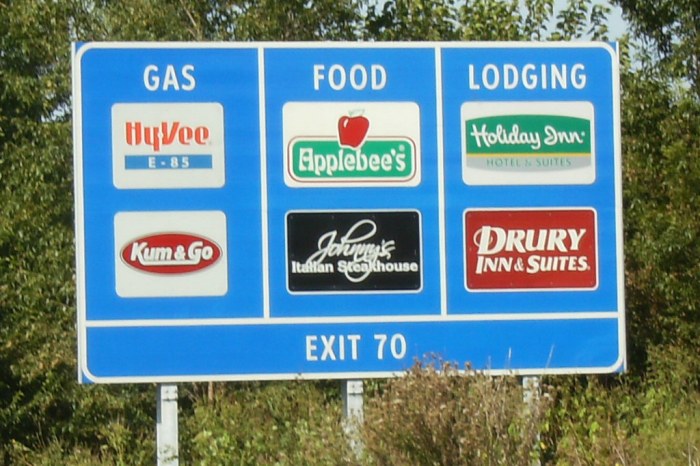Gas food and lodging are in rural areas – Gas, food, and lodging are essential necessities for rural communities, yet their availability and affordability often pose significant challenges. This article explores the intricate relationship between these necessities in rural areas, examining their economic impact, access issues, environmental implications, and role in tourism and community development.
Understanding the unique circumstances faced by rural residents in meeting these basic needs is crucial for developing effective policies and initiatives that support their well-being and economic prosperity.
Economic Impact: Gas Food And Lodging Are In Rural Areas

Gas, food, and lodging are essential necessities for all residents, and their costs have a significant impact on local economies and individuals. In rural areas, the cost of these necessities is often higher than in urban areas, due to factors such as transportation costs, limited competition, and a smaller tax base.
This can place a strain on household budgets and make it difficult for businesses to operate profitably.
The rising costs of gas, food, and lodging can have a devastating impact on rural communities. Businesses may be forced to close, jobs may be lost, and residents may be forced to move away. This can lead to a decline in the population and a loss of vitality in rural areas.
Access to Resources, Gas food and lodging are in rural areas
Rural residents often face challenges in accessing affordable gas, food, and lodging. These challenges can be due to a lack of transportation, limited infrastructure, and a lack of local businesses. This can make it difficult for rural residents to get to work, school, or the grocery store.
It can also make it difficult for businesses to attract and retain employees.
There are a number of government and community initiatives aimed at improving access to gas, food, and lodging in rural areas. These initiatives include providing transportation assistance, building new infrastructure, and supporting local businesses. These initiatives can help to make rural areas more livable and attractive to residents and businesses.
Sustainability

The consumption of gas, food, and lodging has a significant impact on the environment. In rural areas, this impact can be even greater due to the reliance on fossil fuels and the lack of access to renewable energy sources. This can lead to air pollution, water pollution, and climate change.
There are a number of sustainable practices that businesses and individuals can adopt to reduce the environmental impact of gas, food, and lodging consumption. These practices include using renewable energy sources, reducing food waste, and using energy-efficient appliances.
Question & Answer Hub
What are the primary challenges faced by rural residents in accessing gas, food, and lodging?
Rural residents often encounter limited transportation options, lack of affordable housing, and higher costs for necessities compared to urban areas.
How can government policies impact the availability and affordability of gas, food, and lodging in rural areas?
Government policies can influence infrastructure development, energy regulations, and economic incentives, which can directly affect the cost and accessibility of these necessities.
What role does tourism play in the economic development of rural areas?
Tourism can generate revenue for local businesses, create employment opportunities, and promote cultural heritage, but it is essential to ensure sustainable practices that benefit the community.
